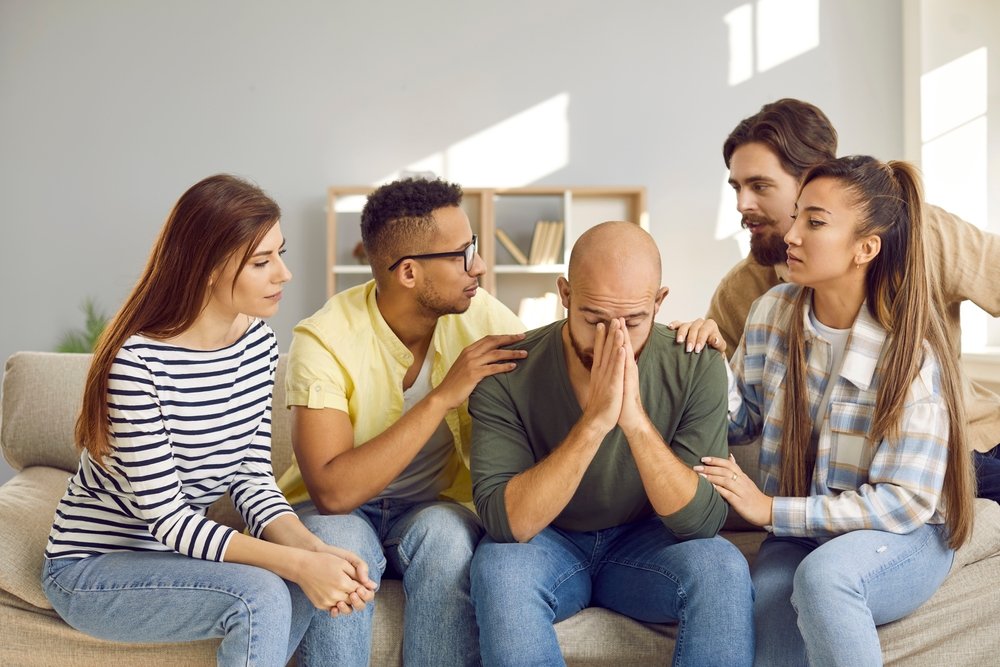Last Updated on February 14, 2024 by Lifevif Team and JC Franco

Friendships can be great, but what happens when they take a dive into the “dark side” and become more of a toxic situation than a healthy friendship? The sad reality is that not all friendships are healthy, and often it is already too late by the time we realize that a friendship we have been investing our time and energy in, is actually quite toxic. What do you do? Are there reasonable and effective ways to deal with a toxic friendship?
You will certainly know if you have been involved in a toxic friendship now or before. Toxic friendships are draining and don’t leave you feeling good or positive about yourself or life. A toxic friend will display common behaviors, such as:
- Always getting involved in pointless drama.
- Pointedly excluding you from events, gatherings, and conversations to “teach” you some sort of lesson or hurt you.
- Playing the victim and trying to drag people into sob stories.
- Unable to empathize.
- Making under-handed insults or hurtful comments.
- Backstabbing and deceitful behavior (talking about you behind your back or spreading untrue rumors).
How do you deal with this? Read on to learn how.
It’s hard to decide whether to nurture or completely cut off a friendship. Even if all the tell-tale signs of a toxic friendship are there, dealing with it is far harder than simply recognizing it. Below are 16 pointers for dealing with a toxic friendship that could help you get your friendship on a healthier track or help you move on to a better life – you decide what’s best for you.
How to deal with a toxic friendship – 16 tips for getting your life in order again:
1. Make a list of pros and cons before confrontation.
When a friend is showing signs of toxic behavior towards you, your first knee-jerk reaction might be to lash out, act emotionally, or completely lose it. Don’t. Rather take a deep breath and set some time aside to truly consider what is going on. Make a list of your friendship’s pros and cons, and how it would impact you if you had to cut the friendship off.
2. Identify precisely what the problem is.
Know what the problem is for you. It would be awful to approach your toxic friend and say you are distancing yourself because the friendship is toxic, but then be unable to provide details of what is toxic in the friendship. Make a list of the behaviors that are bugging you and making you feel this way.
3. Take some space for a while – be “busy”.
Before you swing the sword and slay the friendship, make sure that you have truly given yourself time to consider the situation and that you are fully on board with ending the friendship. Mention that you have a big work project or something similar and just make sure that you are too busy to hang out for a while. Don’t make it mean or pointed – just take some time out for yourself and your head.
4. Know your part in the situation.
Before you go calling someone else toxic, consider if your behavior might have sparked reactions or poor behavior from your friend. Perhaps your friend is feeling as if you are being toxic toward him/her. Make sure that you fully consider your part to play and understand if there is some behavior you can try to change on your end first, to see if the situation improves. This is erring on the side of caution.
5. Forget sentimentality in the process.
If you are certain that your friendship is toxic, don’t spend too much time reminiscing and thinking about the good old days. It’s easier to remember the good times and glamorize a situation, but that won’t help you when the situation reverts back to the same old toxic behavior again.
6. Stop making excuses for someone else’s behavior.
Most people in a toxic friendship will find themselves making excuses for their toxic friend’s behavior. They will say things like, “yes, she was being awful last night, but she is going through a really hard time recently” or similar. Let your friend’s character and personality stand on its own for a while and monitor how other people respond and react to it. Don’t allow yourself to be a shield for a toxic friend.
7. Get honest and upfront with your toxic friend.

Having a conversation about the possible toxicity of your friendship is an important part of the process. Don’t choose a bad day for the friend. Choose a day when they seem happy and balanced. Approach the topic with caution and avoid using the word “toxic” in the conversation. Be open about how you feel, what behaviors are raising red flags, and try to get some answers as to why it is happening.
In the end, if your friendship goes its separate ways, your friend will know why and will also have a good base to make positive changes in his/her life.
8. Be firm about how you will allow yourself to be treated.
If you aren’t ready to cut off a toxic friendship yet, but would like to ensure that you aren’t a victim of poor treatment, you need to get firm about how you will allow yourself to be treated. If a toxic friend sends you a mean message, shut it down immediately by firmly stating you don’t appreciate the tone or nature of the message. If a toxic friend talks about you behind your back, gently approach them and say that you don’t like that and wish that he/she would talk to your face first.
Make sure that the toxic friend is under no illusions about how you will be treated going forward.
9. Set boundaries.
If someone is behaving toxically towards you, put an end to it. A toxic friend should not have free reign in your life. Make yourself less available, share less with him/her, and keep said friend at arms distance. Ensure that there are clear boundaries in your relationship and don’t cross them in a moment of weakness. Be firm.
10. Don’t be wishy-washy if you choose to end the friendship.
If you choose to end the toxic friendship, you must expect the person to become the victim and say all sorts of things to make you feel bad and to make you look bad. Don’t cave. Once you have made the decision, be firm, and don’t go back on it. Don’t cave, don’t second guess yourself – be absolutely certain this is for the best.
11. Don’t take the bait and respond in anger or insults.
When in a toxic friendship, you can expect for the toxic friend to be angry and send insulting messages, especially if he/she realizes that you are distancing yourself or are tired of how the friendship is going. The best thing to do is to ignore anger and insults. Don’t react or respond in a similar vein. Remember that this is what is off-putting to you about the friendship, and don’t let yourself stoop to the very level that you don’t appreciate.
12. Don’t re-engage when time passes.
When breaking off a toxic friendship or taking space, it becomes easy to overlook just how bad it was as time passes. You might meet up with the person by chance in a few months or even receive an unsolicited text message. Do not engage. You will only be welcoming a toxic situation back into your life, and chances are that by now, you are feeling a lot better already.
13. Keep it light and polite.
If you are in a toxic friendship with someone who forms part of your regular group of friends, it can be hard to avoid them completely. You can set boundaries, distance yourself, and keep away from personal one on one time with said person, but you cannot completely eliminate their existence.
In these situations, it is ideal to keep it light and polite. Don’t get into in-depth conversations, don’t make personal invites anywhere, and even if the friend becomes confrontational or dramatic, keep it light and be as polite as possible.
14. Make a conscious effort to seek out healthy new friendships.
So, you found yourself in a toxic friendship. The good news is that you now know all of the red flags to look out for in similar friendships in the future. Now is the time to seek out healthy friendships with people who are kind, caring, balanced, and have a healthy mindset towards life and friendships. The more you surround yourself with healthy and balanced friendships, the less you will miss the dysfunctional friendship you had previously.
15. Don’t dwell on it – forgive and let it all go so you can move on.

When you walk away from a toxic friendship, it can feel like a breakup. You have probably been quite deeply involved emotionally in the friendship, and this can lead to a void being left when it’s “over”. It’s important not to dwell on it. Make sure that you keep yourself busy, don’t harbor negative feelings towards the other person, and be ready to truly move on.
16. Take stock and ensure that you have learned from the “mistake” friendship.
There’s a lot to be learned from a toxic friendship. Make sure that when you decide that it’s not a friendship for you, that you make a list and know what you have learned from it.
In closing
While toxic friendships can rob you of a lot, the good news is that it can also ensure that you learn more about what you personally find of value in a friendship and that you can be a better friend. Make sure that you don’t let a toxic friendship steer the path of your life. Good luck.

